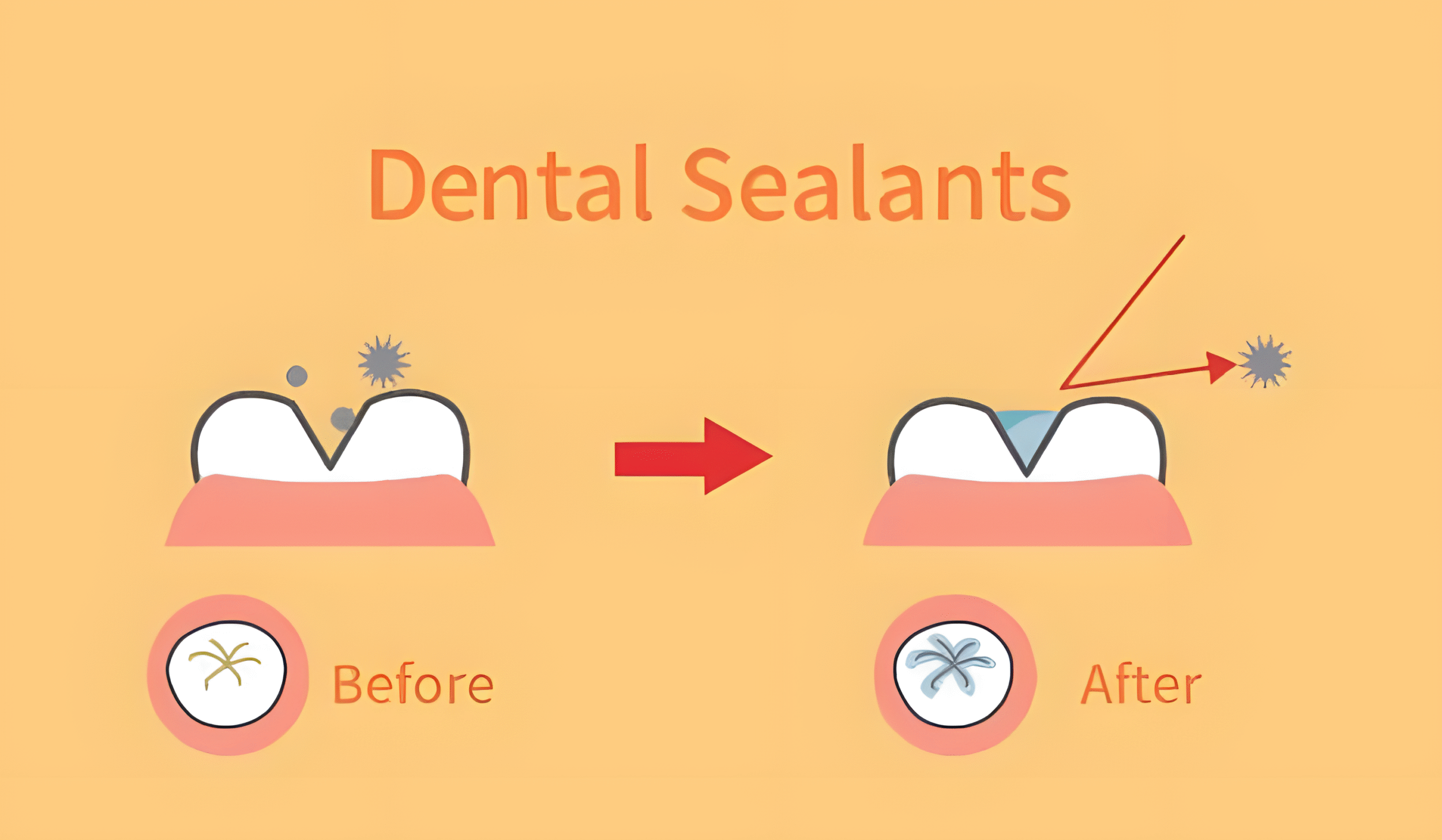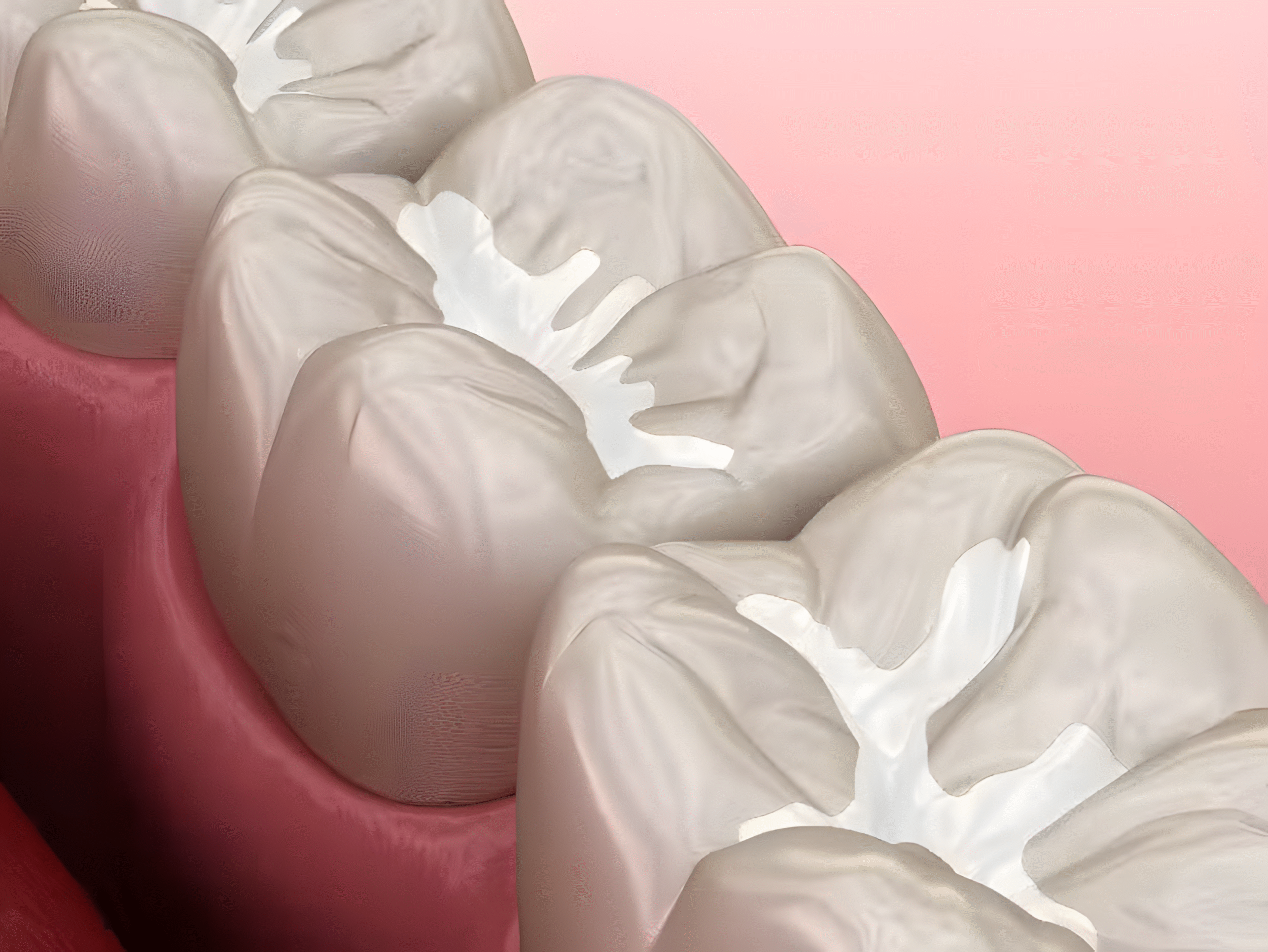
Your back teeth (molars) have the most uneven surfaces by design — the protruding edges are useful when chewing food. At the same time, the cusps between these edges are vulnerable to bacteria and plaque accumulation, which in turn can cause cavities. At Chatham Dental Arts, Dr. Karen Tiwana, DDS, often recommends dental sealants to cover the jagged tops of the molars. Teeth covered by sealants have a reduced risk for developing cavities.
Are You a Candidate for Dental Sealants?
Sealants are a gentle procedure that are safe and appropriate for patients of all ages. Sealants are especially popular with children whose adult teeth have recently come in. Newer adult teeth have weaker enamel and are more susceptible to decay.
What Are the Benefits of Dental Sealants?
Sealants are a convenient solution for reducing the occurrence of cavities in the molars. Molars have many crevices and can be hard to reach in the back of the mouth, even for diligent brushers. As a result, bacteria and food bits are more likely to accumulate on the molars. Fortunately, sealants are highly effective. Studies by the American Dental Association found that having sealants on the molars reduced a patient’s cavity risk by close to 80%.
What Is the Dental Sealant Procedure Like?
Fortunately, the process of receiving dental sealants is both short and comfortable. Dr. Tiwana begins by meticulously cleaning your teeth to ensure that all plaque and food particles are removed. Next, she dries the teeth and applies a solution to prepare the teeth for the resin. Then she applies a thin layer of sealant to cover the nooks and crannies on the teeth. To finish, she uses an ultraviolet light that hardens the resin so that it secures to the tooth. In total, this process takes just a few minutes per tooth receiving the sealant.

What Kind of Results Can You Expect from Sealants?
Although dental sealants are most effective in the three years after they are placed on a tooth, they remain useful for several years altogether. To maximize the value of your sealants, you may wish to replace them periodically.
Keep in mind that sealants are preventative in nature and do not treat existing cavities. Dr. Tiwana may recommend them to a patient whose teeth show early signs of decay to help prevent new plaque from worsening the decay. (Because sealants are transparent, Dr. Tiwana can continue to monitor these teeth even with sealants.)
Another important takeaway is that brushing and flossing remain as important as ever, even with sealants. While sealants can make it more difficult for cavities to form, neglecting your oral hygiene increases your odds of developing cavities anyway.
Contact Chatham Dental Arts for Sealants
Dr. Tiwana has seen the many benefits of dental sealants, specifically their ability to decrease cavities, firsthand in her patients. If you would like to learn more about treating your molars with sealants and hear from a professional about whether you are a good candidate for this straightforward procedure, please call today for an appointment.
